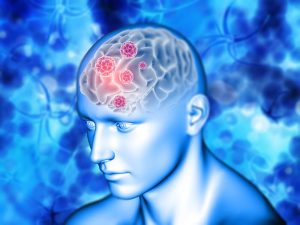Dementia is a degenerative condition that exerts its influence on memory, cognition, and behavior. It impacts both afflicted individuals and their caregivers. Conventional approaches to dementia care center around symptom management and the preservation of physical well-being. In contrast, holistic methodologies encompass a comprehensive consideration of cognitive, emotional, social, and spiritual requirements, thereby increasing the overall quality of life for those contending with dementia. In this article, we will explore the diverse facets of holistic dementia care, with a particular emphasis on nurturing the intellect, physique, and essence.
Caring for the Mind: Engaging Cognitive Abilities
Personalized Activities and Reminiscence Therapy
Engage individuals with dementia through activities tailored to their interests, abilities, and life history. Encourage participation in hobbies or pastimes they enjoyed before developing dementia. Incorporate reminiscing about personal experiences and memories into daily conversations and structured group sessions. These interactions can foster connections between residents, reduce anxiety, and promote self-esteem.
Validation Therapy
Validate therapy emphasizes empathy and understanding when communicating with people experiencing memory loss. By acknowledging feelings rather than correcting factual errors, caregivers create trust and rapport. Validate therapy encourages meaningful conversation while reducing frustration and agitation.
Cognitive Stimulation Therapy (CST)
This evidence-based intervention involves group activities designed to stimulate cognition and communication. CST has been shown to improve quality of life, mood, and cognitive functioning in people living with mild to moderate dementia.
Tending to the Body: Prioritizing Physical Health and Comfort
Exercise and Movement
Physical activity benefits both cognitive and physical health. Regular exercise improves cardiovascular fitness, muscle strength, balance, and mood. Customize workouts based on individual capabilities, ranging from simple seated exercises to more advanced walking programs. Collaborate with healthcare professionals to develop safe and effective movement plans.
Nutrition and Hydration
Proper nutrition supports brain function and overall well-being. Offer balanced meals rich in fruits, vegetables, lean proteins, whole grains, and healthy fats. Monitor fluid intake to prevent dehydration, which may exacerbate confusion and disorientation. Adapt mealtime routines according to each person’s preferences and dietary restrictions.
Sleep Hygiene
Establish consistent sleep schedules and soothing bedtime rituals to improve restorative sleep. Limit daytime napping and minimize distractions such as noise and light during night hours. Adequate sleep promotes cognition, reduces agitation, and bolsters immune system functioning.
Soothing the Soul: Addressing Emotional Wellbeing
Music Therapy
Music has profound effects on emotions, often triggering positive associations and memories. Implement music therapy by playing familiar tunes, encouraging singalongs, or facilitating instrument exploration. Customize playlists based on individual tastes and cultural backgrounds.
Pet Therapy
Animals offer unconditional love and companionship, promoting relaxation and joy. Introduce certified therapy animals during visits, fostering opportunities for interaction and bonding. Supervise these encounters closely to ensure the safety and comfort of all parties involved.
Art and Creative Expression
Artistic pursuits allow individuals with dementia to express themselves nonverbally, boosting confidence and self-worth. Provide access to age-appropriate art supplies, offering guidance without imposing specific expectations or outcomes. Display completed projects proudly, celebrating each participant’s creativity and uniqueness.
Implementing Holistic Dementia Care Strategies
Step 1: Conduct Thorough Assessments
Begin by evaluating each patient’s medical history, current medications, cognitive status, functional ability, psychological state, and social circumstances. Identify areas requiring improvement and set realistic goals collaboratively with the patient and family members.
Step 2: Develop Customized Care Plans
Create individualized care plans based on assessment results. Incorporate diverse therapeutic options tailored to meet each person’s unique needs, interests, and capabilities. Regularly review and adjust plans as necessary to ensure continued effectiveness.
Step 3: Foster Collaboration Among Healthcare Professionals
Encourage multidisciplinary teamwork among physicians, nurses, therapists, dietitians, pharmacists, and other relevant specialists. Coordinated efforts can help optimize treatment outcomes, reduce polypharmacy risks, and prevent potential complications.
Step 4: Educate Patients and Families
Provide comprehensive information about dementia progression, available resources, and coping mechanisms. Empower them to make informed decisions regarding care choices and actively participate in disease management.
Step 5: Promote Active Living
Encourage daily physical activity suitable for each patient’s fitness level and abilities. Regular exercise has been shown to slow down cognitive decline, enhance mood, and boost energy levels.
Step 6: Prioritize Proper Nutrition
Offer nutrient-dense meal plans rich in fruits, vegetables, lean proteins, whole grains, and healthy fats. Ensure adequate hydration and address any swallowing difficulties or special dietary requirements.
Step 7: Address Emotional Wellbeing
Establish supportive environments conducive to expressing emotions and sharing experiences. Facilitate access to counseling services, peer support groups, and mindfulness practices to alleviate stress, anxiety, and depression.
Step 8: Cultivate Meaningful Relationships
Promote opportunities for social engagement within families, communities, and residential settings. Organize group activities that foster connection, purpose, and joy.
Step 9: Optimize Environmental Design
Design living spaces that are secure, accessible, and visually appealing. Utilize color contrast, clear signage, and familiar objects to minimize disorientation and facilitate independent functioning.
Conclusion
In conclusion, holistic approaches to dementia care prioritize comprehensive support for the mind, body, and soul. By engaging cognitive abilities, addressing physical health, and nurturing emotional well-being, caregivers can enhance the quality of life for those affected by dementia. Integrating these strategies into everyday care practices fosters a compassionate environment where every individual feels valued, understood, and respected.





